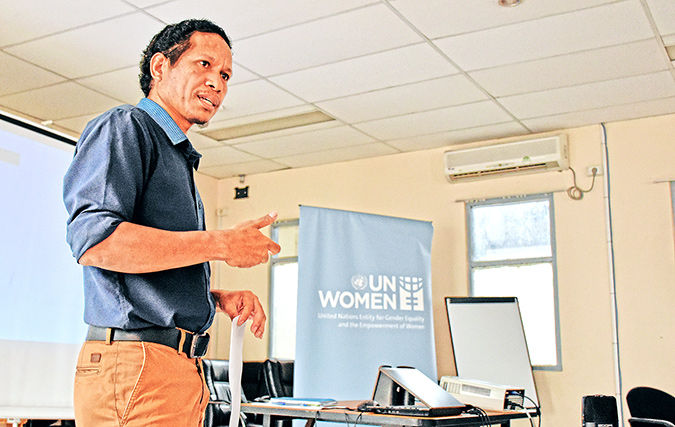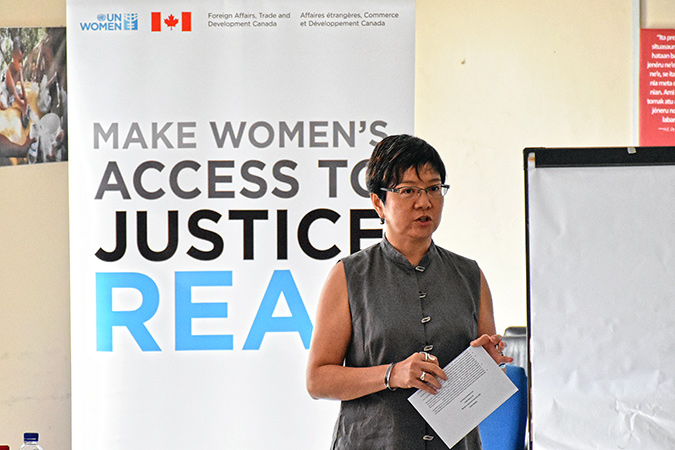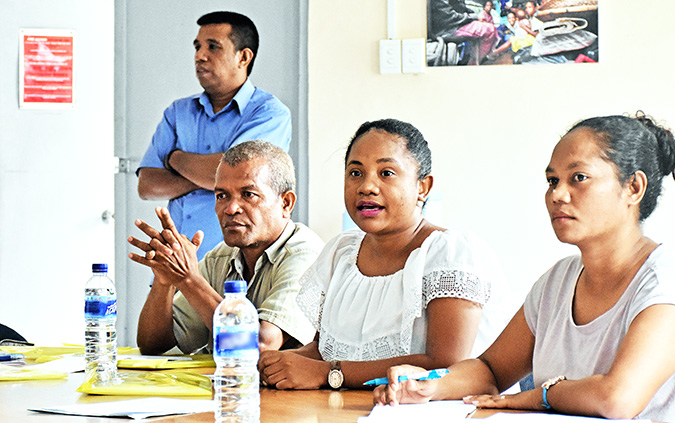Better Assistance for Survivors of GBV through Better Case Documentation
Date:
Deli, Timor-Leste – “Often, those of us working in the advocacy sector put a lot of effort but fail to convince people because we lack the necessary data,” said Luis Oliveira Sampaio, the Executive Director of Judicial System Monitoring Program (JSMP), during the opening of 2-day workshop on documenting cases of gender-based violence (GBV).

Gender-based violence (GBV) continues to be one of the most pervasive forms of violence in Timor-Leste, and the majority of the perpetrators are male intimate partners. According to the Nabilan Report by the Asia Foundation, approximately 3 in 5 women aged 15 to 49 (59 %) had experienced physical and/or sexual violence by their male intimate partner at least once in their lifetime. Additionally, data from the Timor-Leste Demographic Health Survey (2010) indicates that 38% of young Timorese women reported suffering some form of physical abuse since the age of 15. Those aged between 25-29 years are particularly at risk of abuse.
In his remarks, Mr. Sampaio emphasized the need for a system whereby cases that are related to GBV can be well-documented, in order to better provide assistance to the victims. “We can’t go to the Parliament or to the Council of Ministers to demand them to draft a law (which will criminalize certain actions) without providing them any sufficient data to back us up.”

To address the challenge for better case documentation, UN Women Timor-Leste partnered with JSMP to enhance awareness on the value of good case documentation, facilitated by Ms. Evelyn Ursua, a human rights legal expert and activist from the Philippines.
Janet Wong, UN Women Country Representative in Timor-Leste, said in her opening remarks “in addition to raise awareness, we also hope to be able to identify what information needs to be documented in case records regarding GBV cases for further advocacy, to increase ability to record information in a clear, concise, and efficient manner as well as to establish a common definition or classification of crimes related to GBV.”
Common definition or classification of crimes related to GBV is not enough, all entities working on elimination of violence against women must come together and share their information with each other. “In the end, we all have the same interest, to provide support for the victims of GBV and to ensure that they receive the necessary treatment from the State,” Mr. Sampaio said.

The call for a closer collaboration was shared by Agripina, a law student and advocate working with the women’s organization Fokupers to support survivors of sexual abuse. Agripina shared the learning she gained during the workshop, noting that although most of the cases of GBV are documented as domestic violence (DV), “through the training, we learned that those cases can be classified into different categories, not just domestic violence, but also sexual violence, etc.” As a survivor of violence herself, Agripina stated proudly, “I want to study law so I could help fellow women better.”
During the workshop, the participants agreed to have standard format for case documentation. They have been identified and defined according to the experiences of NGOs and the forms of gender-based violence that they have encountered in Timor-Leste. The participants agreed to use this format as standardized for Gender Based Violence case documentation for the NGOs.
Media Contact:
Please contact: Felix Maia
Communications Officer, UN House, Rua de Caicoli, Dili, Timor-Leste.
Mob: +670 7833 9440 Email: [ Click to reveal ]